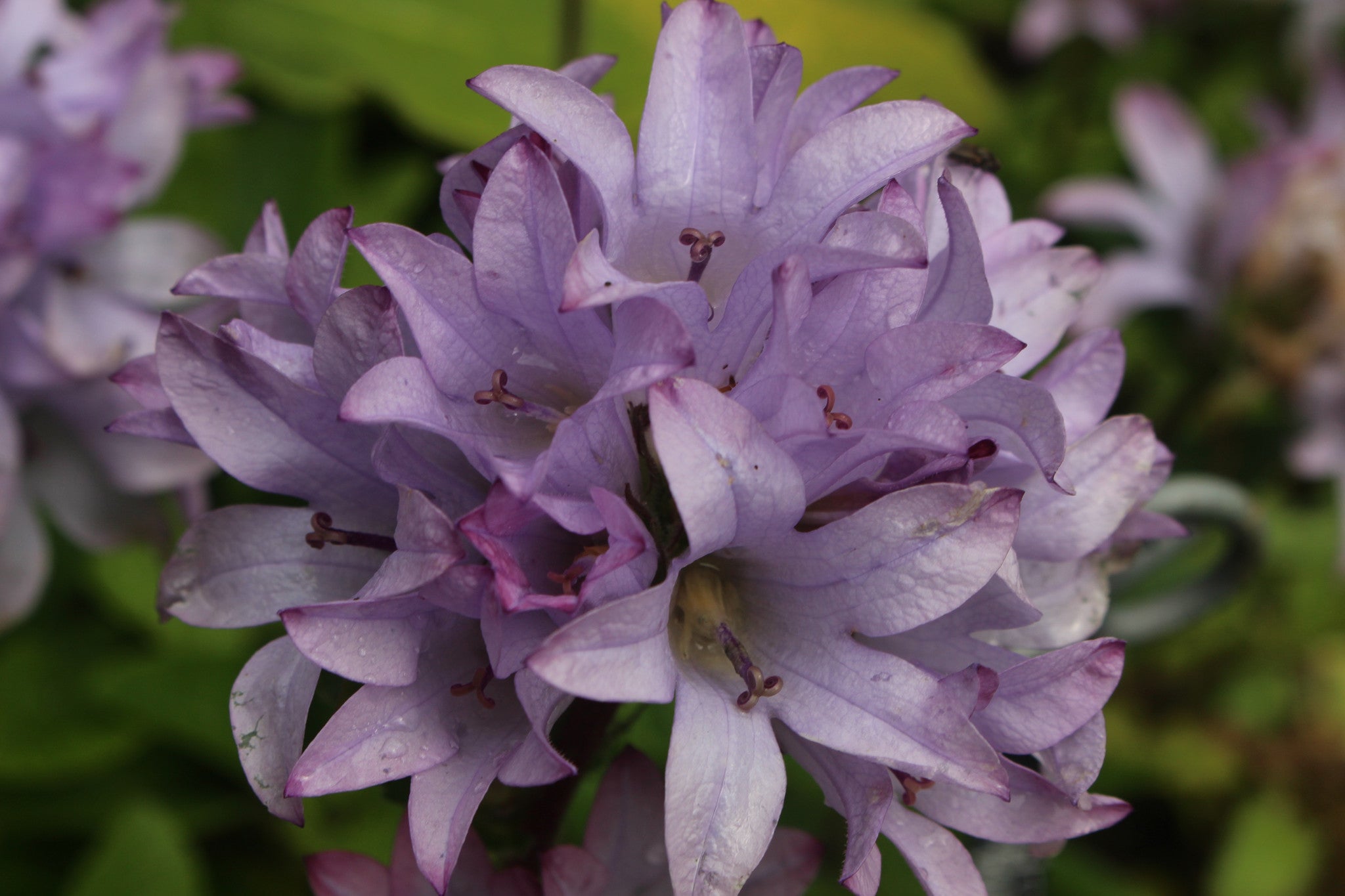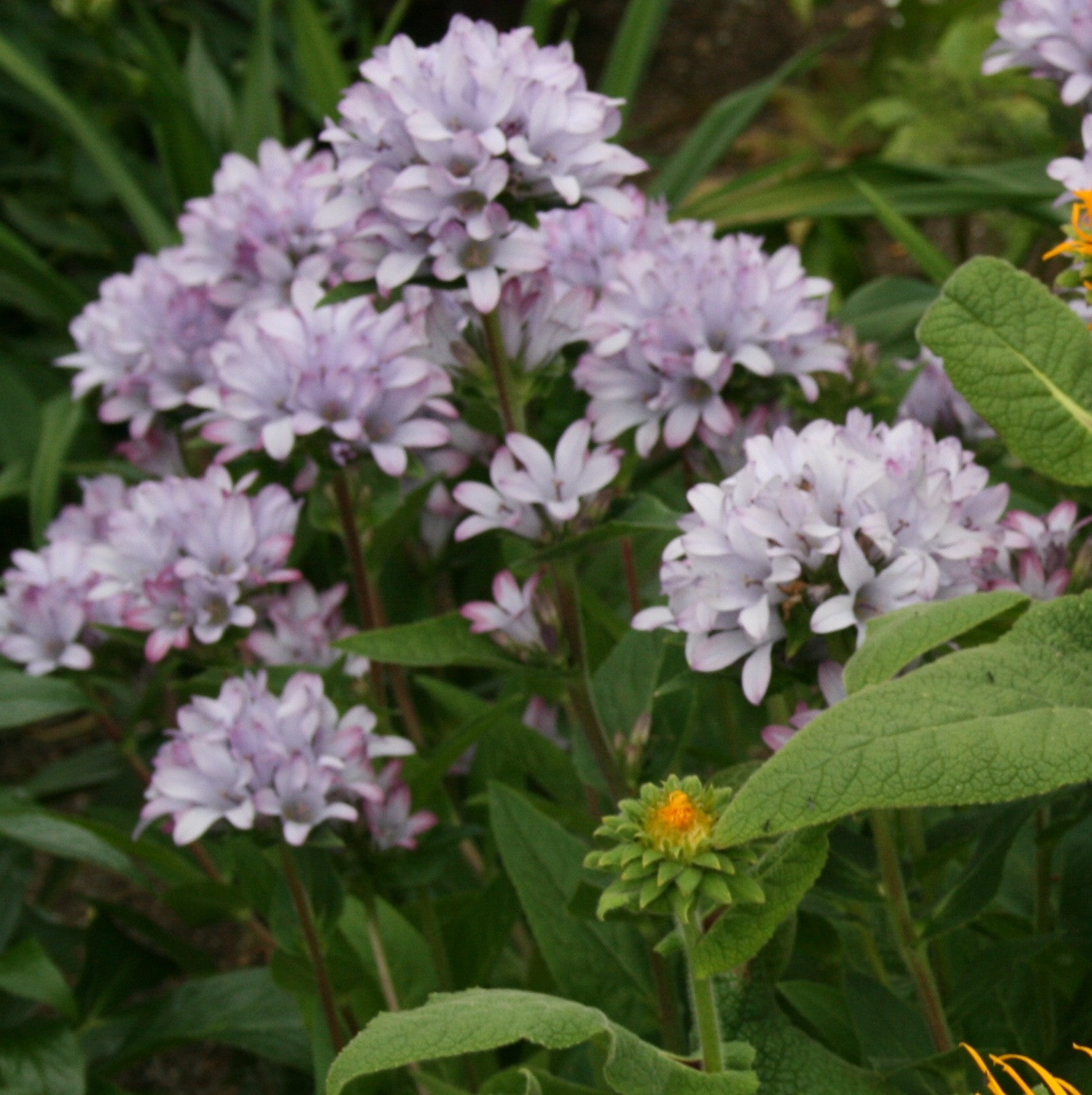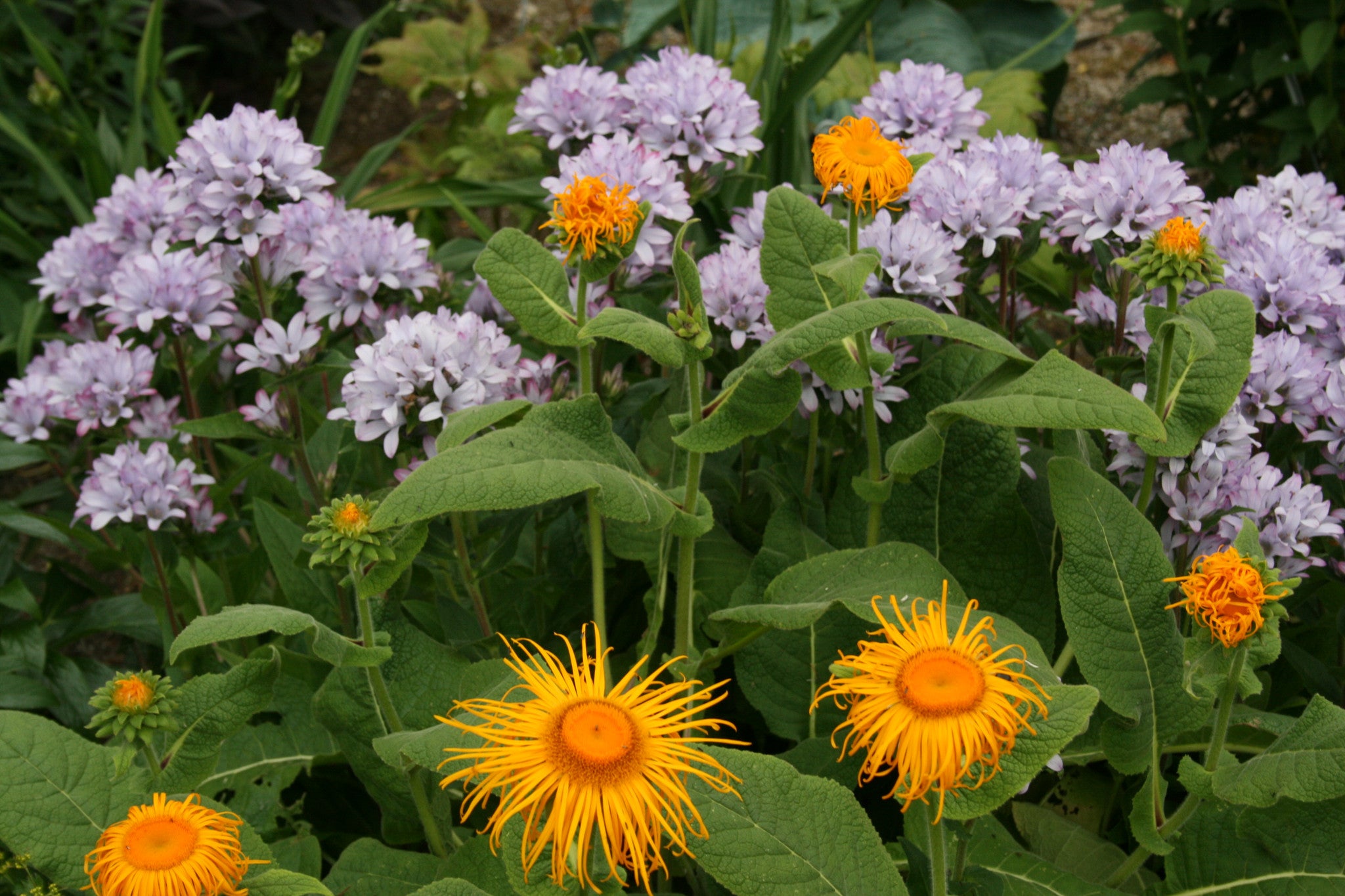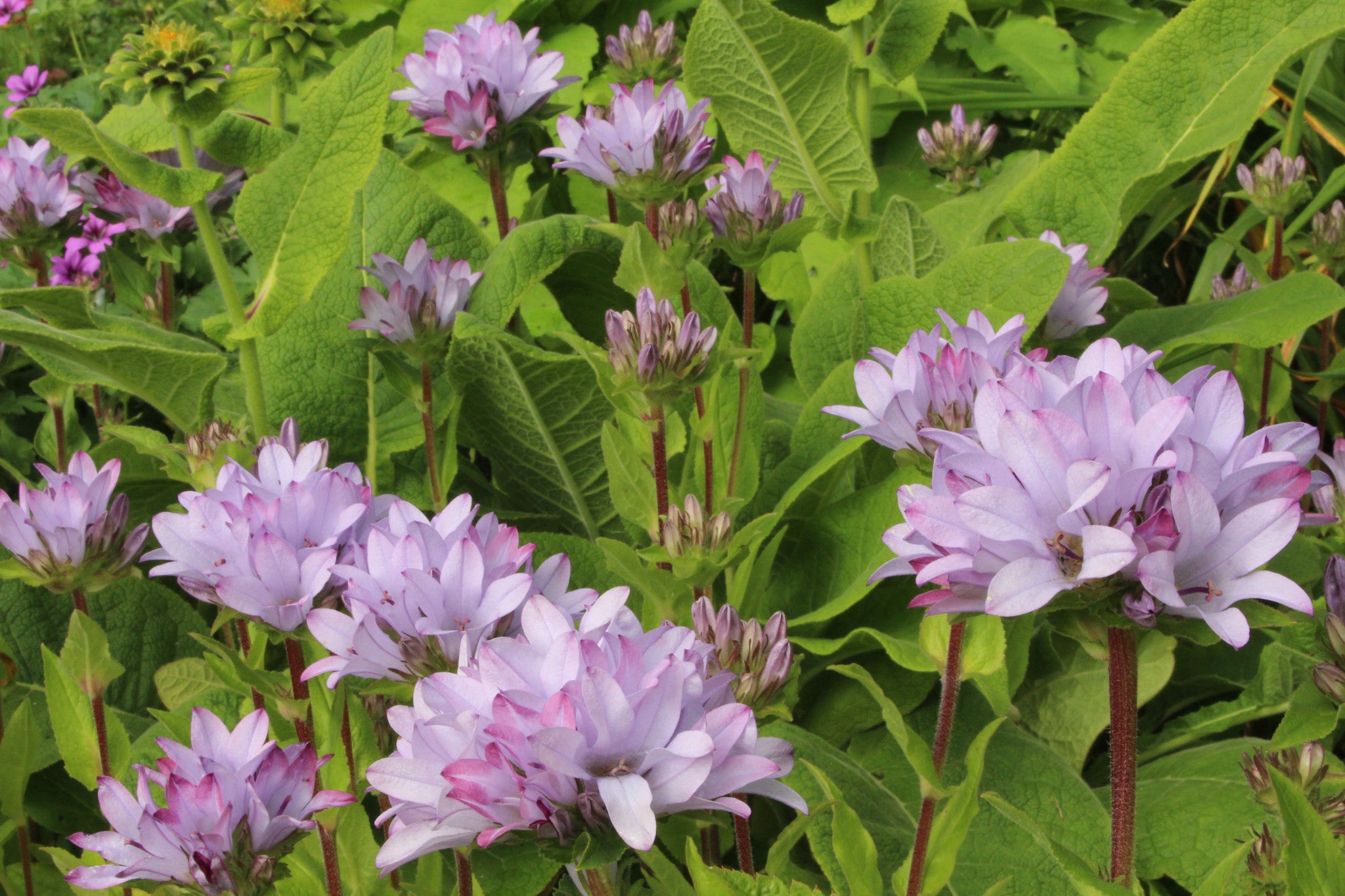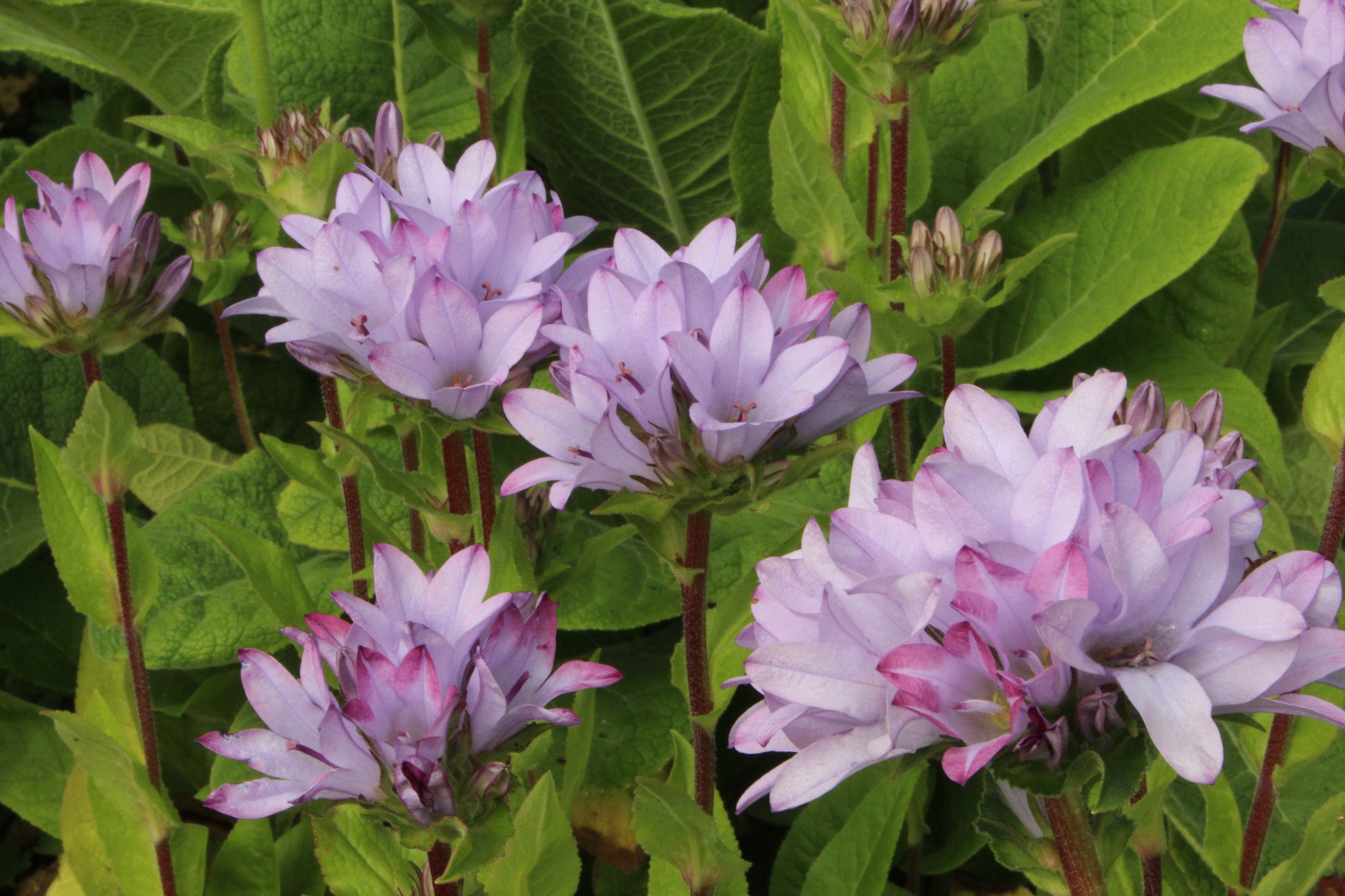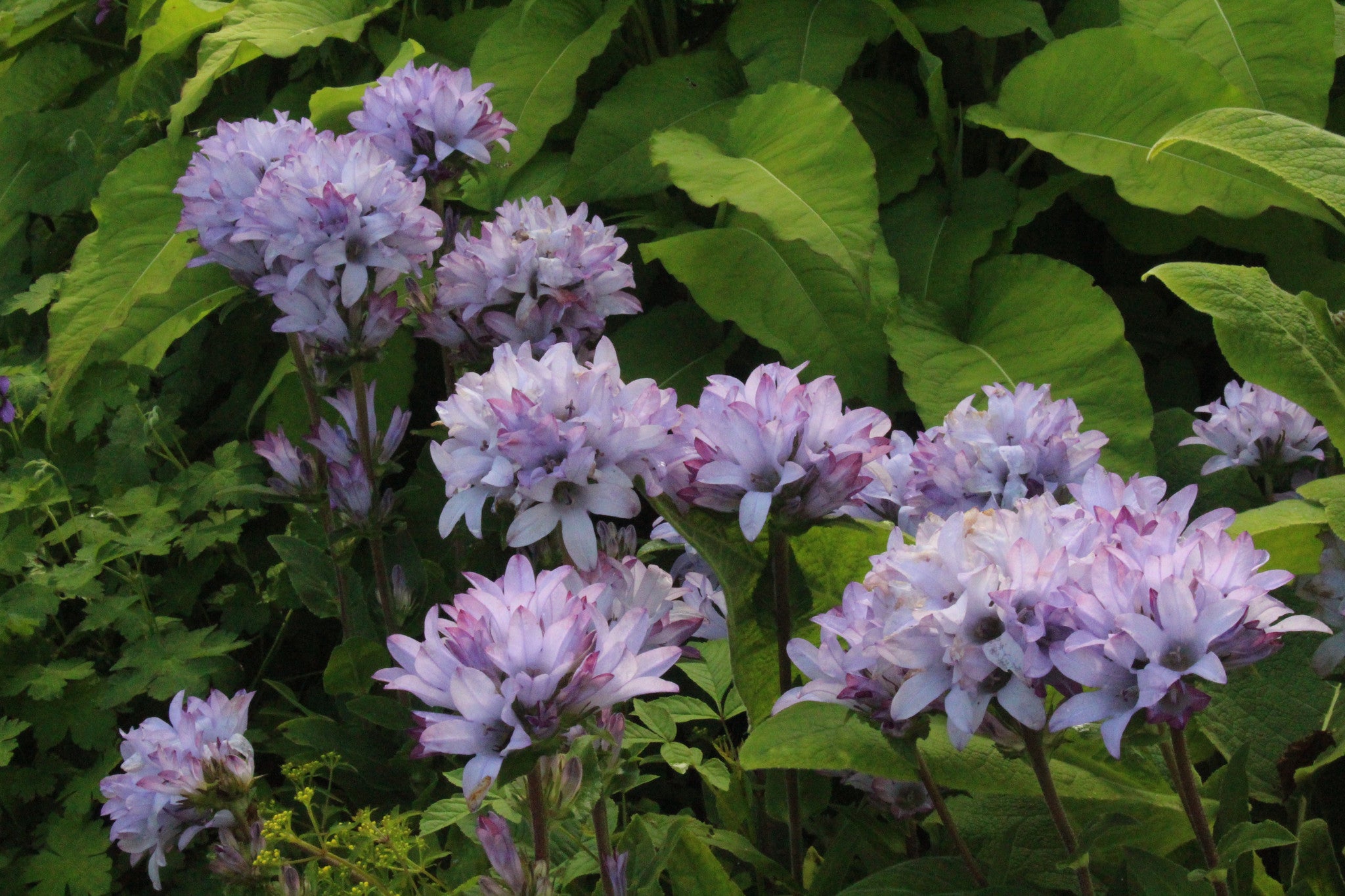Campanula glomerata 'Caroline'
Approx. 0.5 litre pot
About this cultivar:
Campanula glomerata 'Caroline' is part of my favourite plant combination of all time: just add Inula royleana. Have a look at the photos across and I hope you agree. I am not sure if my dad knew they would look so good together when he first planted them in our garden, but who cares?
In 2013 the RHS gave it their Award of Garden Merit. They said 'Masses of flower borne very well above foliage. Good, erect, stiff stems'.
'Caroline' is a cultivar of Campanula glomerata (known by the common names clustered bellflower or Dane's blood). This species is the County flower of Rutland in England, although we think this cultivar should be grown all round the world! As a slow grower it doesn't cause much trouble. It also pairs well with Amsonia, Acanthus, and Lilium. Winner of the Royal Horticultural Society Award of Garden Merit.
- Position: Full sun, partial shade
- Soil: Almost any soil, grows well in Ballyrobert
- Flowers: June, July, August
- Other features: Royal Horticultural Society Award of Garden Merit (RHS AGM), Grows well in Ballyrobert
- Hardiness: Fully hardy - grows well in Ballyrobert!
- Habit: Bushy, Clump forming
- Foliage: Deciduous
- Height: 45 - 60 cm (1.5 - 2 ft)
- Spread: 45 - 60 cm (1.5 - 2 ft)
- Time to full growth: 2 to 5 years
- Plant type: Herbaceous Perennial
- Colour: Pink, purple, green
-
Goes well with: Hosta, Geranium, Lupin, Inula, and Phlox.
About this genus:
Campanula is a wide-ranging genus (over 500 species!) of plants that contains everything from rare, difficult-to-grow wimps to vicious invasive thugs. Over the years, we have killed (with love or violence) several Campanula cultivars and discarded others, but along the way we found some gems that do great in our own garden: no weaklings and no violent spreaders. We offer them, all perennials, here.
Campanula are late spring and summer flowering perennials that prefer partial sun - but many will tolerate deep-shade and full-ish sun. They grow well in a variety of soils - almost anywhere that isn't too extreme. Campanula usually produce bell-shaped flowers that attract all sorts of wildlife. This feature is so emblematic, that plant taxonomists have even coined the word "campanulate" to mean any bell-shaped flower (note also that Campanula is Latin for "little bell"). However some species of Campanula have 'split-open-type' bell flowers which may start life looking bell-like but soon don't look like bells at all (unless you folded them and glued them together in some origami style).
When deciding plant combinations for the genus it is difficult because the cultivars vary so much! From ground cover to 6 feet tall! So in this section I don't think I'll bother and maybe try to be specific to the cultivar on offer. Having said that, Campanula are the one of the most versatile plants in the garden which might explain their ubquity..

